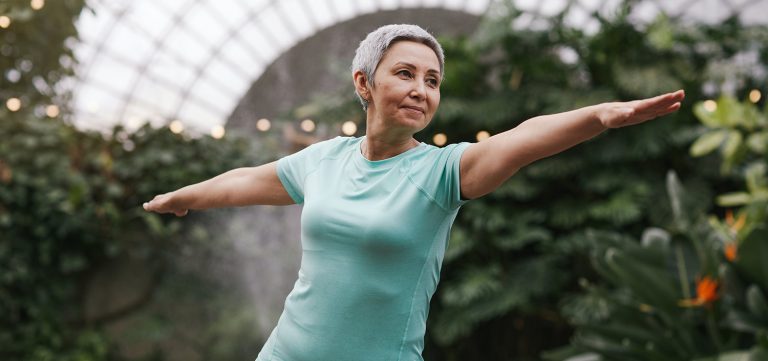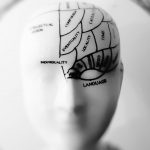“Cognitive health in seniors: strategies for maintaining a sharp mind” is a collaborative post.
As individuals age, maintaining cognitive health becomes an essential aspect of overall well-being. The ability to think, learn, and remember plays a pivotal role in a senior’s quality of life and independence. In this era of increased life expectancy, strategies for preserving a sharp mind among older adults are gaining prominence.
This article explores various approaches and lifestyle choices that contribute to cognitive health in seniors.
1. Mental gymnastics for cognitive well-being
Participating in cognitive exercises, commonly referred to as mental gymnastics, is a dynamic approach to enhancing the cognitive well-being of seniors. Acquiring new skills, such as mastering a language or learning to play an instrument, serves as a stimulating workout for the brain.
Additionally, activities like solving puzzles and engaging in strategic games such as crosswords, Sudoku, chess, and brain teasers further enhance mental agility. Reading and writing provide continuous opportunities for intellectual exploration and creativity. Furthermore, memory challenges, including the use of mnemonic devices, word games, and memory palaces, contribute to honing cognitive recall.
In recent times, there has been a rise in mental health gyms, representing an innovative approach to emotional well-being. As highlighted by U.S. News, these mental fitness studios offer programs specifically designed to improve crucial skills like courage, gratitude, and confidence.
While not a substitute for professional mental health care, these programs cater to individuals seeking ongoing support for emotional well-being. Similar to community mental health centres from the past, these initiatives share parallels by imparting life skills that enhance mental resilience.
In response to the heightened focus on mental health amid the pandemic, these mental gymnastics contribute to a more resilient overall well-being.
2. Staying curious for an active mind
Embracing a mindset of perpetual curiosity is a key component in promoting cognitive health among seniors. This curiosity-driven approach encompasses various activities that stimulate the mind and foster continuous learning.
Watching documentaries and educational shows broadens the horizons by introducing seniors to new topics, diverse cultures, and historical events. Attending lectures and workshops and participating in book clubs provide interactive opportunities to delve into intriguing subjects and engage with new ideas.
Travel and exploration stand out as powerful avenues for staying curious. Visiting new places, exploring museums, and discovering historical sites offer a change of scenery and present opportunities for intellectual enrichment. The immersive experience of learning from different environments contributes significantly to cognitive stimulation.
In the town of Sudbury, Massachusetts, initiatives such as the Technology Help for Older Adults Grant have been awarded to the Sudbury Senior Center. This grant signifies a dedication to building ongoing learning opportunities for seniors. Specifically, it supports digital literacy workshops that focus on enhancing social connections and improving access to healthcare.
These workshops empower seniors to navigate the digital landscape with confidence, enabling them to stay connected in an increasingly technology-driven world.
In this context, the role of in-home caregivers in Sudbury is vital. These caregivers play a crucial role in supporting seniors, ensuring their well-being, and fostering an environment conducive to curiosity and continuous learning.
As seniors explore new avenues, in-home caregivers contribute to creating a supportive and enriching environment that enhances overall quality of life.
3. Maintaining strong social connections
Regular interaction with friends and family catalyses stimulating conversation, problem-solving, and building emotional resilience. Joining clubs or groups with shared interests not only provides mental stimulation but also establishes a sense of belonging and social connection.
Additionally, volunteering emerges as a powerful strategy. It offers the dual benefit of helping others while bringing purpose and meaning to one’s life, thereby boosting mental well-being.
According to a Maryland Today report, Marie Brodsky ’24 recognised the isolation her grandfather faced after moving from Houston to Rockville, Maryland. Witnessing his struggles due to physical limitations and language barriers, Brodsky was inspired to address the social isolation many older adults experience.
Teaming up with Sonia Warrior, they developed WISE Cities (Where Innovation Supports Everyone), a web platform. The platform aims to combat social isolation among seniors by creating spaces for connection.
As previously discussed, the importance of in-home caregivers in Rockville cannot be overstated when addressing social isolation among seniors. These caregivers extend beyond practical assistance, offering companionship and emotional support. In instances like Brodsky’s grandfather, in-home caregivers play a crucial role in bridging language and cultural gaps.
According to Always Best Care Senior Services, these caregivers facilitate social engagement, preventing seniors from being confined to isolation. Their presence becomes integral to the overarching initiative of meeting the social and emotional needs of older adults, cultivating a more connected community.
4. Maintaining healthy habits
Prioritising healthy habits is paramount in safeguarding and enhancing cognitive health among seniors. Quality sleep takes centre stage, as it is a fundamental contributor to optimal brain function and memory consolidation.
Adequate and restful sleep provides the brain with the necessary time to rejuvenate and consolidate memories, which is crucial for sustaining cognitive abilities.
Stress management emerges as another crucial facet in maintaining cognitive well-being. Techniques such as meditation, yoga, and deep breathing exercises serve as powerful tools to mitigate stress. Managing stress not only contributes to a more serene mental state but also plays a vital role in preserving cognitive function over time.
Regular health check-ups constitute a proactive approach to cognitive health. Consulting with a doctor about cognitive concerns and prioritising routine check-ups allows for early detection and management of potential issues. Monitoring blood pressure and cholesterol levels becomes integral, as maintaining these within healthy ranges supports cognitive vitality.
5. Importance of physical activity
The benefits of exercise extend beyond physical fitness to encompass cognitive well-being. Aerobic exercises and strength training, in particular, enhance blood flow to the brain, building an environment conducive to improved cognitive function. Additionally, these activities stimulate the growth of neurons, contributing to the overall health of the brain.
Staying active in everyday life plays a pivotal role in maintaining cognitive vitality. Simple yet consistent activities like daily walks, gardening, or engaging in light housework contribute significantly to cognitive well-being. These activities not only provide physical exercise but also offer mental stimulation, further supporting overall brain health.
A balanced diet complements the benefits of physical activity in nurturing cognitive health. A diet rich in vegetables, fruits, lean protein, and whole grains provides essential nutrients that nourish both the brain and the body. The symbiotic relationship between physical activity and a nutritious diet creates a holistic approach to promoting cognitive well-being among seniors.
Final thoughts on cognitive health in seniors
In summary, promoting cognitive health in seniors necessitates a comprehensive approach that addresses various facets of their lifestyle and overall well-being. As we navigate the complexities and possibilities linked to the ageing process, the incorporation of these strategies becomes essential.
By embracing the ageing process with resilience, curiosity, and a dedication to lifelong learning, seniors can make intentional efforts to empower themselves. Through these deliberate endeavours, they can age gracefully, sustaining cognitive acuity and embracing the diverse range of experiences that life offers.






